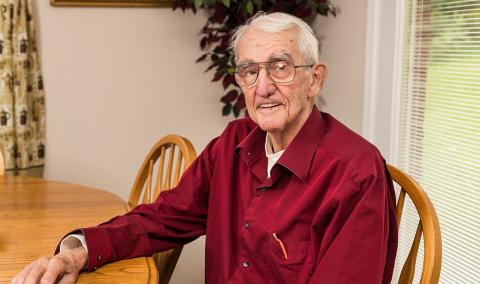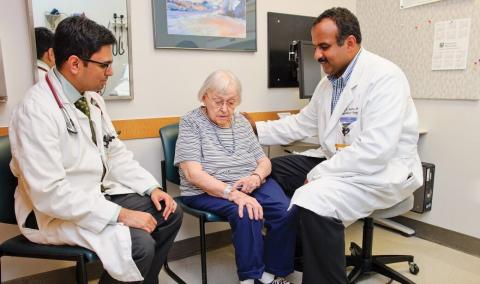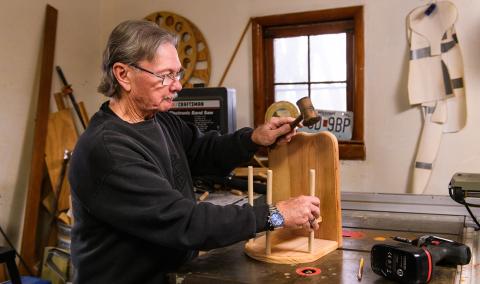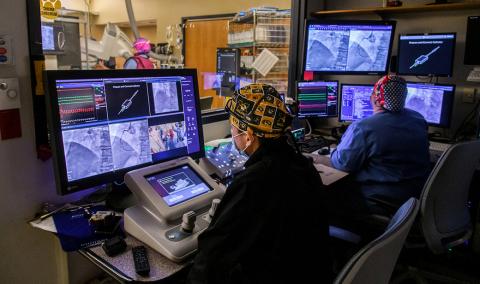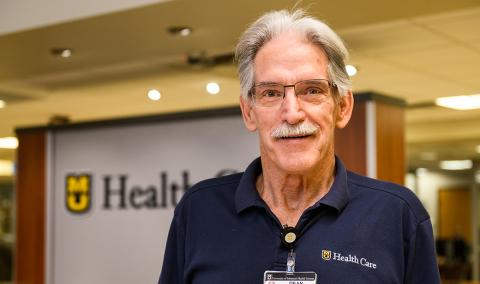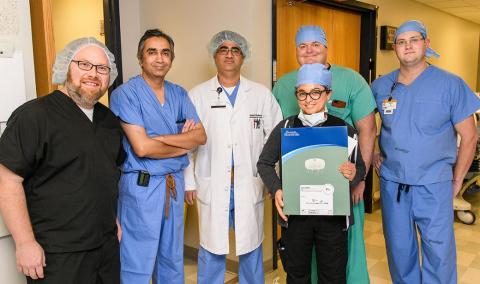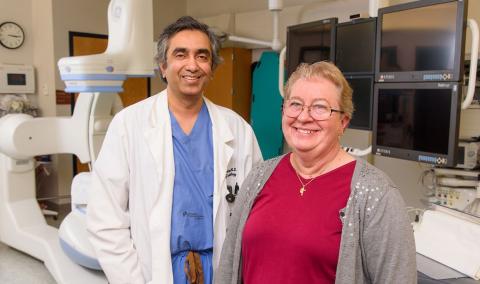On each side of your neck, a carotid artery brings blood to your brain. As you age, a substance called plaque can build up inside these arteries. Plaque causes the arteries to become narrow (stenosis), blocking blood flow to your brain and increasing your chance of a stroke.
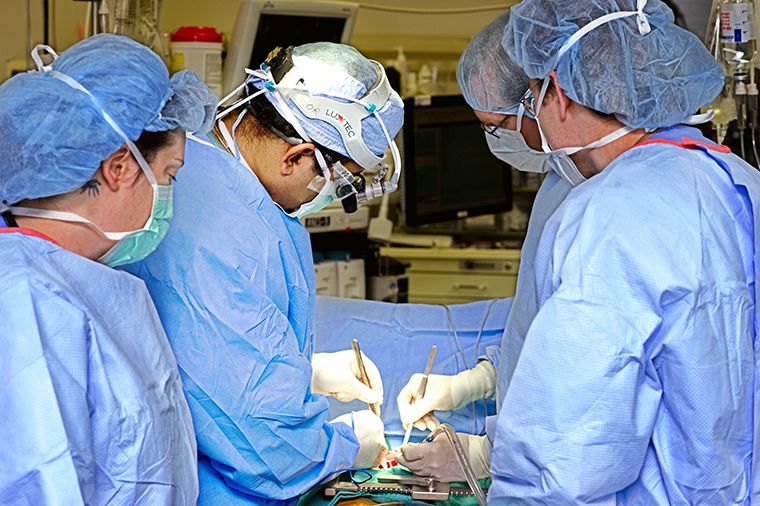
When you are diagnosed with carotid artery disease, you want comprehensive care from a team of experienced professionals. At University of Missouri Health Care, our heart and vascular specialists provide the compassionate, personalized care you deserve. We use a team-based approach and the latest research to give you the care you need for better heart health.
Carotid artery disease diagnosis
Smoking, high blood pressure, high cholesterol, diabetes or a family history of carotid artery disease can contribute to plaque build-up. Many people with carotid artery disease have no symptoms. A stroke or “mini stroke” (transient ischemic attack or TIA) is often the first sign of the disease.
If your physician is concerned you may have carotid artery disease, they may use a Doppler ultrasound, a noninvasive test that uses sound waves to create a moving image to examine your arteries. They may also order a CT angiogram, a test that uses X-ray technology to create 3D images of your neck.
At MU Health Care, we use advanced cardiac imaging technology to provide an accurate diagnosis and personalized treatment plan. Our multidisciplinary team of cardiologists, vascular surgeons and nurses helps you choose the best treatments for you.
Carotid artery disease treatment
Carotid artery disease treatment may include:
Medicine and monitoring
Medicines can reduce your risk of stroke and help prevent further plaque build-up. Along with lifestyle changes, medicine can improve your heart health. If your carotid arteries only have a small amount of plaque build-up, your physician may also want to conduct regular ultrasounds to keep an eye on the state of your carotid arteries.
Advanced vascular surgery
If you have a large amount of plaque build-up, your doctor may recommend surgery to open up narrowed arteries. At MU Health Care Heart and Vascular Center, our experienced vascular surgeons perform the latest procedures in leading-edge hybrid operating rooms. These rooms combine the technology of a cardiac catheterization lab and an operating room so that vascular surgeons, interventional cardiologists and cardiothoracic surgeons can all perform advanced procedures in the same room.
Our surgeons perform carotid artery surgery — known as an endarterectomy — by making an incision in the neck to access the carotid artery and then removing the plaque. If you are not a good candidate for open surgery, minimally invasive stent procedures can clear the blockage. MU Health Care offers the innovative TCAR procedure, which temporarily reverses blood flow away from the brain while the stent is placed, minimizing the risk of stroke during the procedure. Another option is a traditional stent procedure in which a small tube is guided from an incision in the groin up to the site of the blockage and a stent is implanted.
After carotid artery surgery, you will have better blood flow through your carotid arteries and a lower chance of stroke. Generally, recovery takes only a few days before you can return to your normal activities.
Learn more about Heart & Vascular Care at MU Health Care.
Related Conditions & Treatments
- Aortic Disease Care
- Atrial Fibrillation (AFib) and Arrhythmia
- Carotid Artery Disease
- Chest Pain
- Chronic Total Occlusion (CTO)
- Congenital Heart Disease
- Coronary Artery Disease
- Cardiothoracic Surgery
- ECMO Heart and Lung Life Support
- Heart Attack
- Congestive Heart Failure
- Heart Valve Disease
- Pediatric Cardiology
- Pediatric Vascular Anomalies
- Peripheral Artery Disease (PAD)
- Structural Heart Program
- Transcatheter Aortic Valve Replacement (TAVR)
- Vascular Surgery
- Women's Heart Health




